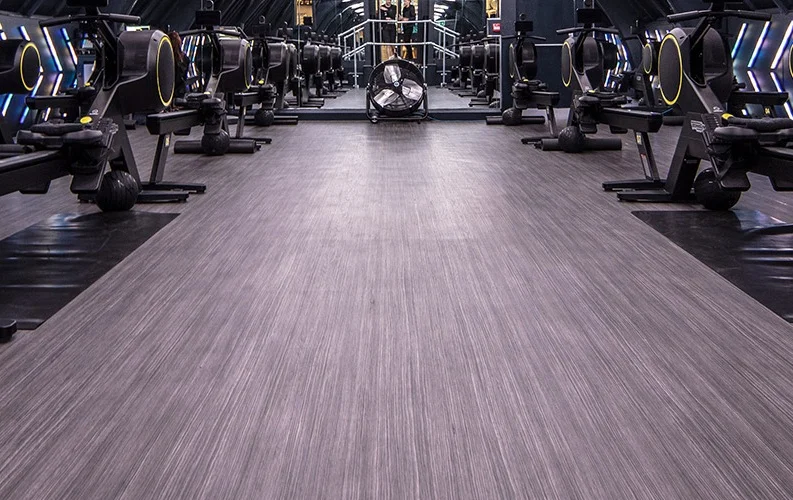Content Hub
Categories
When we contemplate the modern teams or organisations, we automatically fast forward our thoughts to the 21st century of more diverse, digital and dynamically dispersed team members facing the integrated complex set of obstacles that hinge on their success rate. The new bandwidth contradicts to the teams of the past, which used to rely on using repeated terms of collaboration, coordination and communication, with often very little substance or merit behind.
Every one of us has an unspoken desire to be perceived as a competent professional with the skills and potential to lead, specifically in the workplace environment. However, it can often be difficult to determine exactly how to achieve a true executive presence. Especially when there are many contrasting opinions regarding this matter. The volume at which you talk, the tone of your voice, and the speed of your speech may all be a contributing factor in how you are perceived professionally.
If there’s one thing that we can be sure of is that we will be flooded with ads and notifications from gyms trying to capitalise on our New Year’s Resolution List. But instead of telling you how you can lose 20 pounds by next week, we’re going to tell you simple and easy leadership behaviours to adopt for 2020.
As the famous saying of Benjamin Franklin goes “You may delay, but time will not”. Having said that, when we hear the word procrastination, most of us immediately imagine the never-ending series of prolonging tasks, missing deadlines, and then panicking at the time when the deadline is sitting right at our backs. But as leaders, withdrawing from the tasks, or dodging the deadlines is not an option anymore!
‘Phoenix rising from the ashes’; the phrase dashes into our minds when we hit the rock bottom. As the storyline goes, the phoenix is a mythological creature with fiery feathers that lives around 100 years (Brenner, 2015). At the last stage of its life, the bird settles into its shell of twigs, which then scorches ferociously with fire, turning the bird and its nest into ashes. And from those ashes, a fledgling phoenix rises! A Renewed and Reborn version.
The scene is all too familiar; some sort of workshop on the topic of ‘emotional leadership’ has been scheduled by your organisation, and as you shuffle through your tasks for the day – your eyes roll to the sight of your name on the invite list.
The only difference between you and a recognised leader is knowing that you have the right potential, courage, and drive to take a step forward to reach your desired goal. However, before jumping to unlock your capabilities, it is essential to first clear the misconception that leaders are born.
In last month’s interview chaired at the annual Village Global conference, eyes seemed glued at Bill Gates’ every word. For some members, his advice may as well have been gospel for the 1990s tech entrepreneur; business à la ‘command and control’, with team feelings and behaviours at best, an afterthought. But sat opposite the well-known tech titan was a different type of entrepreneur.
Fast-forward to 2019, and pressures of automation are forcing organisations to find new ways to reduce their time footprint. And to truly ‘rise to the prize’ as a new competitor in this fierce environment – this also means combining shorter tasks with a higher level of productivity.
When we think of the modern team or organisation, a ‘science-like’ approach to tasks and targets quickly springs to mind: competition is fierce in the global market environment – and this has led many organisations to approach human relationships as the next inefficiency to systematise.
For the majority of team leaders, team performance and ‘behaviour’ don’t quite sit together: the modern organisation is designed to measure results, not relationships; and this way of thinking has crept just as much into sports as the military organisation.
When it comes to increasing team productivity, behaviour is monitored – not measured. The majority of modern projects and team activities are intellectual and can be pre-planned: the real-time experience of social behaviours are therefore seen as something to mitigate rather than something to manage for better results.
Technogym has equipped the fitness center at the Olympic House, the new headquarter of the International Olympic Committee – IOC, in Lausanne, dedicated to the IOC staff and partners. Technogym has a strong historic relation with the Olympic movement, since it has been repeatedly chosen as the Official Supplier to seven editions of the Olympic Games: Sydney 2000, Athens 2004, Turin 2006, Beijing 2008, London 2012, Rio 2016 and Pyeongchang 2018. This relationship between Technogym and IOC, spanning almost two decades, is the result of closely matching values such as: quality, innovation, credibility and sustainability, in both sport, work and life.
On the surface, a modern office meeting may not look too different from the classic 1990s boardroom: reports are shuffled, ideas are discussed; and minus the occasional google search, meetings are still treated as organic touchpoints that move decisions and projects forward.
But outside the office, the world has moved on: today’s economy is swimming in data, and that makes the decisions made during organic meetings all the more impactful.
Step inside The Engine Room and you’ll see every detail of this boutique’s aesthetic has been chosen to deliver wow-factor. 16 Technogym SKILLROW machines form the centrepiece of London’s stunning new concept boutique in Regent’s Park. It’s the first boutique to take the indoor rowing concept and turn it into an immersive, data-driven experience focused on improving physical performance.
For every blockbuster campaign or corporate giant, we know that ‘something must have happened’: birthing a new creation means working against the tide – and this means dialling up the high-performance habits needed to get this ‘impossible’ over the line.
Ultimately, the most genius and creative ideas are only as real as they're own manifestation; and the habits that fuel the average day of a high-performance manager may be the final ingredient for bringing plans, products and dreams into reality.
Ask any corporate team, and the same classic moment comes to mind: amidst the natural chit-chat of a project meeting on a Monday morning, a colleague stumbles – and breaks corporate flow with a statement that is just ‘not quite right’: awkward smiles are exchanged, and the topic quickly shifts to the weather to the bemusement of the project manager at the other end of the table.
The crucial moment of a race it’s always at the finish line, whether it's a victory or a defeat. But the crucial moment for an athlete, the one that can affect the entire performance, is far from the applause of the crowd and from the finishing line flag.
The idea of setting goals and delegating complex activities at the push of an excel button may not sound too far-fetched for large enterprise – but even CEOs of the largest multinational organisations would dismiss this as an unrealistic ideal: ultimately, the complex and subjective nature of many ‘white-collar’ activities makes the process of setting project targets a qualitative process.
Technogym will be Official Supplier and Bronze Sponsor to the Lima 2019 Pan American and Parapan Games. Technogym, globally recognized as the reference brand for elite athletic training setting the standard in sports, rehabilitation and wellness, has been selected to create the training center for the most important sporting event of the South American continent.
For the first time ever, the event will take place in Peru from July 26th to September 1st that will gather 6,700 athletes, who will participate in 39 sports and 61 disciplines.
When it comes to ‘high-impact’ decision-making, nothing quite compares to the daunting pressure of a real-time cricket stadium: one wrong turn, one slight miscalculation – and the game is lost to the other side.
However, with England’s surprise victory in the spotlight, many cricket enthusiasts are wondering whether there is more to this win than meets the eye: when faced the real-time pressure of meeting the target, athletes such as Ben Strokes simply do not have the mental bandwidth to recall training principles.
The fitness market in Europe (and beyond) is very healthy. This is confirmed by the 2018 edition of the annual study conducted by EuropeActive (formerly the European Health and Fitness Association - EHFA) and Deloitte.
European Health & Fitness Market Report (EHFMR) 2018 focuses on the fitness-wellness clubs of the 28 countries of the European Union, as well as those of Norway, Russia, Switzerland, Turkey, and Ukraine. Fitness and wellness are not only in fashion today, but finally many are realising the importance of physical activity and sport.
What does evolutionary biology have to do with personality psychology or organisational behaviour? Everything.
Our human ancestors repeatedly solved many problems related to their survival (avoiding threats, finding food) and reproduction (finding a mate, caring for one’s kin). This is obvious because if they hadn’t solved such problems, we wouldn’t be here to write this essay, and you wouldn’t be here to read it.
Technogym will be among the Official Suppliers of the 2019 World Rowing Cup III (12-14 July, Rotterdam). The most prestigious rowing event chooses Technogym’s SKILLROW for athlete training.
Technogym will locate inside the World Rowing Cup warm-up area 8 SKILLROW, the most innovative training product dedicated to rowing, and will support all competitors taking part in the regattas giving them the opportunity to train.
The idea that ‘men are from Mars and women are from Venus’ may make us chuckle when enjoying a 1960s movie classic. But when back in the workplace environment, the majority of HR managers would discourage such stereotypes as out-of-date – and even a barrier to team productivity.
For those who are completely unaware of the subject, it is almost natural to link the image of a regatta on a sailing boat to something extremely relaxing from a physical and mental point of view: the sound of the sea, the warmth of the sun, the breath of the wind; aspects that, indeed, are an integral part of a world that, in reality, is extremely challenging and certainly not within everyone's reach.
Travel back in time to any 1950s soccer stadium, and much would be eerily the same: the usual chatter would be heard from left to right, and eyeballs would be seen fixed to their favourite player to the slurp of some caffeinated beverage.
However, even mentioning the concept of a ‘female athlete’ is where these similarities would end.
Instinctively, we all know that theoretical tactics and repeat training only go so far: with both eyes fixed on the finish line and their opponent’s every move, athletes need a more primal motivator to kick in – and that is ego.
However, a quick walk over from the sports stadium to any nearby business centre would reveal a slightly different story.
Mentioning concepts of ‘retaining and attracting talent’ has become almost a religious practice for any sit-down interview with high-performance CEOs: it would be easy to assume that these topics are simply easier to understand, with the real strategies and systems behind the scenes just too out-of-touch for the average viewer.
When asked whether up-skilling their team members may benefit the organisation, relatively few business leaders would say no: flick through any HR manual, and ‘training refresh’ sessions will stick out as occasional tasks to add to the company calendar.
Can genetic testing help with sports training, nutrition and recovery?
Genetic testing is being used by medical practitioners more and more for health insights and optimal treatment guidelines. Research within the genetics of sporting performance has been prolific, and it’s been shown that a high percentage of the variance in athlete status is explained by additive genetic factors.







































It happens all too often; you kickstart your day with lots of brainstorming, giving yourself a pep-talk and a hint of caffeine, which pinches you to bring something new to the table now and then. Every day you construct mind maps and cautiously shuffle through your team’s performance to plan your next move. Something fresh! that would add value to your team’s results. But the scene is all too familiar, and every time you endeavour a new practice for the team, it disappoints and you began doubting your leadership capabilities.